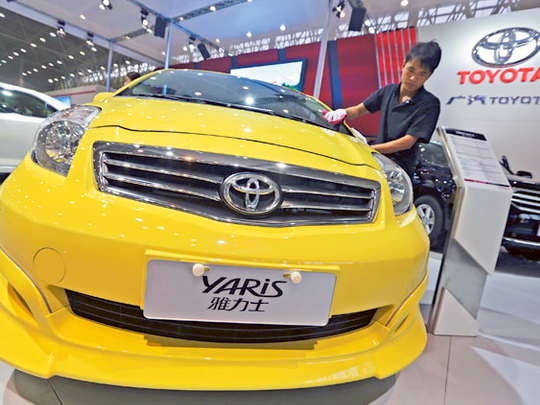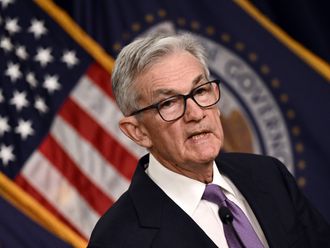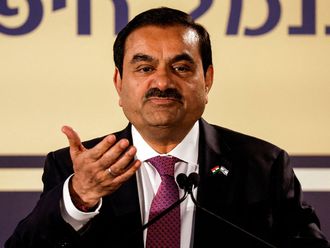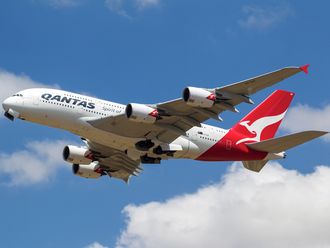
Tokyo: Toyota Motor Corp.’s two-year reign as a better credit than the Japanese government has ended as violent protests over a territorial dispute with China hurt its sales in the world’s biggest car market.
The credit-default swaps for Toyota, the world’s largest automaker, climbed 8.4 basis points to 85.5 basis points on Oct. 10, exceeding the 84 basis points for the sovereign for the first time since August 2010, according to data provider CMA. Those for Honda Motor Co. rose 7.5 to 85.9, while Volkswagen AG increased 1.1 to 105.5, the data show.
Toyota’s September deliveries in China dropped 49 per cent from a year earlier, the biggest drop since at least 2008, after demonstrators protesting Japan’s purchase of islands claimed by both countries torched Japanese auto showrooms and smashed vehicles last month. Continuing tensions are deterring buyers concerned their automobiles will be targeted, according to Kazuo Ohara, executive vice president at Toyota’s luxury brand Lexus.
“Sales halving in September suggests the issue will probably linger longer than expected,” Shintaro Niimura, a credit analyst at Nomura Securities Co., said in a telephone interview from Tokyo on Thursday. “The first impression was that the impact would be limited to just a couple of days. Now, the credit markets are recognising the China risks are really there.”
ITraxx unchanged
The increase in automaker bond risk contrasts with the Markit iTraxx Japan index of credit-default swaps for 50 companies. The gauge declined one basis point to 226.6 on October 10, according to CMA, which is owned by McGraw-Hill Cos. and compiles prices quoted by dealers in the privately negotiated market. An increase signals worsening perceptions of creditworthiness.
Toyota raised 80 billion yen on September 7 in a two-tranche offering including 50 billion yen of five-year 0.317 per cent bonds priced to yield 8 basis points more than similar-maturity government debt, according to data compiled by Bloomberg. The spread rose to 11 basis points on Thursday, JS Price data show.
The spread on the automaker’s $1.5 billion of 0.875 per cent notes due July 2015 relative to Treasuries rose 2 basis points this month to 41.3 as of 10:46 a.m. in Tokyo, according to BNP Paribas SA prices.
Joichi Tachikawa, a Toyota spokesman in Tokyo, declined to comment when contacted by telephone Thursday.
Car owner beaten
Lexus is refraining from marketing campaigns in the country for the meantime, Lexus’ Ohara said in an interview in Tokyo on Thursday.
“The commotion has passed, but I’m concerned about the impact on consumer attitudes,” Ohara said. “Imagine your brand new car getting damaged. That’s enough to keep some people from buying.”
A Chinese Toyota owner in the country’s northwestern Shaanxi province was struck on the head with steel lock by a demonstrator, leaving him unconscious for day, the official Xinhua News Agency reported. The suspect in the beating, which was captured on video, was arrested, the report said.
Elsewhere in domestic credit markets, Kansai Electric Power Co. hired Daiwa Securities Group Inc., Mizuho Financial Group Inc. and SMBC Nikko Securities Inc. for a 20 billion yen sale of three-year bonds, Mizuho said in a statement on Thursday. The offering will be the third debt sale by the utility since the March 2011 earthquake and tsunami sparked a crisis at a nuclear plant in Fukushima.
JGB yields
Hitachi Capital Corp. raised 20 billion yen split between 0.421 per cent five-year notes and 0.666 per cent seven-year bonds, according to a statement from Nomura Holdings Inc. Kyoto prefecture sold 10 billion yen of 0.8 per cent 10-year debt, the brokerage said in a separate release on Thursday.
Yields on benchmark 10-year government notes changed little at 0.755 per cent as of 10:55 a.m. The securities yielded 91.5 basis points less than similar-maturity Treasuries, compared with 116 basis points a year earlier, data compiled by Bloomberg show.
The yen dropped 0.01 per cent to 78.45 per dollar as of 10:57 a.m., down from a post-World War II record of 75.35 in October. It has strengthened 3.6 per cent in the past six months, the biggest gainer among the 10 developed-nation peers tracked by Bloomberg Correlation-Weighted Indexes.
Bond return
Japan’s corporate bonds have handed investors a 1.44 per cent gain this year, compared with a 1.89 per cent increase for the nation’s sovereign securities, according to Bank of America Merrill Lynch data. Company notes worldwide have returned 9.5 per cent in the period, the data show.
A total of 1,967 credit-default swaps contracts insuring a net $1.55 billion of Toyota Motor’s debt were outstanding as of October 5, according to the Depository Trust & Clearing Corp. That’s compared with 7,848 contracts for a net $11.5 billion for Japan’s sovereign debt, according to DTCC, which runs a central registry for the swaps market that captures most trading. Higher number of contracts means the swaps are more widely traded.
Wholesale deliveries, including multipurpose and sport utility vehicles, fell 0.3 percent to 1.32 million units last month, the China Association of Automobile Manufacturers said in a statement October 10. That compared with the 1.35 million average estimate of nine analysts surveyed by Bloomberg.
Toyota’s September deliveries tumbled 49 per cent from a year earlier to 44,100 vehicles, Honda’s dropped 41 per cent to 33,931, the lowest since May 2011, while those of Nissan Motor Co.’s fell 35 per cent to 76,066, according to the companies.
Losing share
Sales of Japanese cars slumped 41 per cent to 160,000 units, cutting their combined market share to 12.2 per cent from 20.5 per cent a year earlier, according to the association. Chinese car brands posted the second-highest monthly sales this year, delivering 561,900 vehicles for a 7.5 per cent gain.
The demonstrations last month escalated after Japan purchased the islands, called Diaoyu in Chinese and Senkaku in Japanese, from a private Japanese owner.
Thousands of protesters marched in Chinese cities on September 18, the 81st anniversary of the Manchurian Incident, an attack on a railway that historians say was used as an excuse by Japan to invade China. Demonstrators in Shanghai gathered at the Japanese consulate chanting “Down with the Japan devils, give back Diaoyu.”











